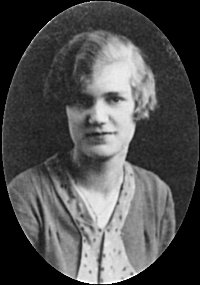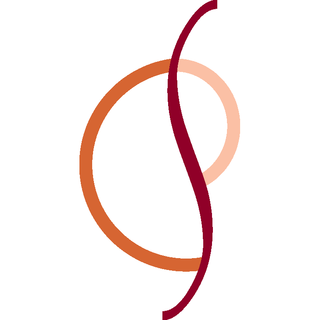
VSO is a not-for-profit international development organization charity with a vision for "a fair world for everyone" and a mission to "create lasting change through volunteering". VSO delivers development impact through a blended volunteer model consisting of international, national, and community volunteers working together to develop the systems and conditions for positive social change. In 2022–23, VSO worked in 35 countries in Africa and Asia.

International development or global development is a broad concept denoting the idea that societies and countries have differing levels of economic or human development on an international scale. It is the basis for international classifications such as developed country, developing country and least developed country, and for a field of practice and research that in various ways engages with international development processes. There are, however, many schools of thought and conventions regarding which are the exact features constituting the "development" of a country.

Development aid is a type of foreign/international/overseas aid given by governments and other agencies to support the economic, environmental, social, and political development of developing countries. Closely related concepts include: developmental aid, development assistance, official development assistance, development policy, development cooperation and technical assistance. It is distinguished from humanitarian aid by aiming at a sustained improvement in the conditions in a developing country, rather than short-term relief. Development aid is thus widely seen as a major way to meet Sustainable Development Goal 1 for the developing nations.

Poverty reduction, poverty relief, or poverty alleviation is a set of measures, both economic and humanitarian, that are intended to permanently lift people out of poverty.
Gender mainstreaming is the public policy concept of assessing the implications for people of different genders of a planned policy action, including legislation and programmes. Mainstreaming offers a pluralistic approach that enhances diversity among people of different genders.

Mariela Castro Espín is the director of the Cuban National Center for Sex Education in Havana, as well as the National Commission for Comprehensive Attention to Transsexual People, and an activist for LGBT rights in Cuba. Castro is an outspoken advocate for the LGBT+ community as well as dissolving some of the antiquated stigmas and stereotypes that surround the community. She is the daughter of former Communist Party First Secretary Raúl Castro and feminist and revolutionary Vilma Espín, and the niece of former First Secretary Fidel Castro.
Global Rights is an international human rights capacity-building non-governmental organization (NGO). Founded in Washington, D.C., in 1978 with the name International Human Rights Law Group, the organization changed its name to Global Rights: Partners for Justice in 2003 on the occasion of its 25th anniversary. In December 2014 it shut its Washington headquarters and devolved the center of its operations to its country office in Nigeria and Burundi from where the organization continues to work with local activists in Africa to promote and protect the rights of marginalized populations. It provided technical assistance and training to enable local partners to document and expose human rights abuses, conduct community outreach and mobilization, advocate for legal and policy reform, and provide legal and paralegal services.

What got us talking about women and their correlation to the environment?
The Beijing Declaration was a resolution adopted by the UN at the end of the Fourth World Conference on Women on 15 September 1995. The resolution adopted to promulgate a set of principles concerning the equality of men and women.

The Center for Policy Studies (CPS) is an academic unit within Central European University, dedicated to improving the quality of governance in Central and Eastern Europe and the former Soviet Union by the provision of independent public policy analysis and advice.

Hamdallaye is a village and rural commune in Niger. In 2012, it had a registered population of 57,002 inhabitants. It is located in the southwest of the country, near the Niger River, the border with Mali and Burkina Faso and the national capital, Niamey. It is the location of a U.S. Peace Corps training site, a weekly market and a mosque.

The Gender Park, established in 2013, is an initiative of the Government of Kerala to work towards gender equality and empowerment in the state. It is headquartered in the state's capital, Thiruvananthapuram. Its main 24-acre campus is set at Silver Hills, Kozhikode (Calicut). With a key focus on gender justice, it is a platform for policy analysis, research, advocacy, capacity development, economic and social initiative. It found standing under the Department of Social Justice and is the first space of its kind in the world. Currently working under the Department of Women and Child Development, it aims to become a premier convergence point for gender-related activities. Recently, UN Women and The Gender Park have entered into an equal partnership to develop the Park as a South Asian hub for gender equality.
Jocelyn Naupa is a Ni-Van advocate for gender equality and women affairs in Vanuatu.
Foreign aid for gender equality in Jordan includes programs funded by governments or non-governmental organizations (NGOs) that aim to empower women, close gender based gaps in opportunity and experience, and promote equal access to education, economic empowerment, and political representation in the Hashemite Kingdom of Jordan.

The Vietnam Women's Union, otherwise referred to as the VWU or Hội Liên Hiệp Phụ Nữ Việt Nam in Vietnamese, is a socio-political organization that represents and defends the legal and legitimate rights and interests of Women in Vietnam. Originally founded on October 20, 1930, there are currently over 13 million members belonging to 10,472 local women's unions in communes and towns throughout the country. The current president, for the 2017-2022 term, is President Hà Thị Nga and Vice Presidents Bùi Thị Hòa, Trần Thị Hương, Hoàng Thị Ái Nhiên, and Đỗ Thị Thu Thảo. There have been leadership changes throughout this term however. Nguyễn Thị Thu Hà was the president until April 2020 before Hà Thị Nga became the president in May 2020. Nguyễn Thị Tuyết was a Vice President until February 2020. Đỗ Thị Thu Thảo was not named Vice President until July 2018.

Dato' Seri Paduka Maimunah binti Mohd Sharif is the Executive Director of the United Nations Human Settlements Programme (UN-Habitat). She assumed office in January 2018, becoming the first Asian woman to serve as Executive Director of UN-Habitat. On 20 January 2022, she was re-elected by the UN General Assembly for a two-year term that ends on 19 January 2024.
Feminist foreign policy, or feminist diplomacy, is a strategy integrated into the policies and practices of a state to promote gender equality, and to help improve women's access to resources, basic human rights, and political participation. It can often be bucketed into three categories: rights, resources, and representation. The concept was first coined and integrated into governmental policy by Margot Wallström, former Swedish Foreign Affairs Minister. The objectives of feminist foreign policy include :

Fatou Djibo was a Nigerien women's rights activist, feminist, educator and trade unionist. She was President of the Union des Femmes du Niger and was also the first woman from Niger to drive a car.
Alice Banze is a trained social scientist with a career in civil society organizations like Oxfam, and Gender Links and government. She is the executive director of Gender and Sustainable Development Association and a member of the UN Women-supported African Women Leaders Network. In December 2020, Banze was elected member of the National Elections Commission with the support of the Women's Forum, an umbrella grouping of Mozambican women's rights organizations.
In this article, NGOs in West Africa will be divided into three categories: African national NGOs, African international NGOs, and non-African international NGOs. NGOs stand for non-governmental organizations. These organizations are mostly non-profit and mostly work independently from the government, they have specific aims that range from human rights, finance, health, education and more. There are many non-governmental organizations in West Africa, and much activity between these countries, organizations and the rest of the world.











